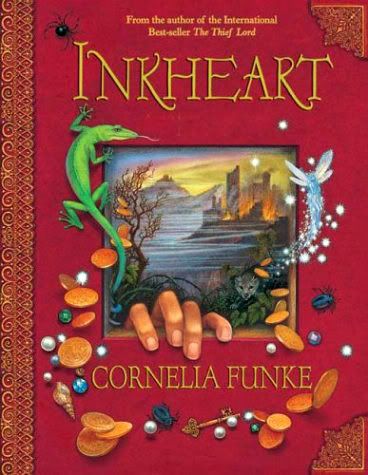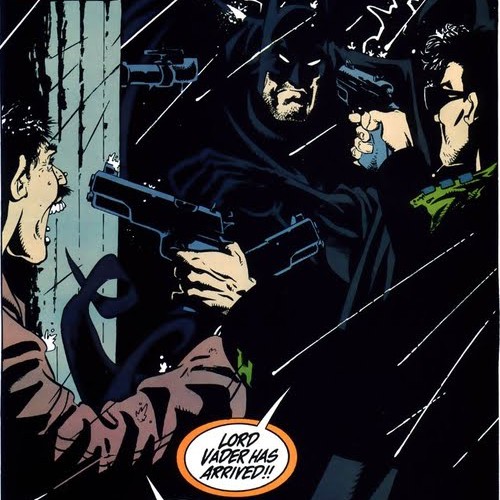
Bleh
I tend to do things in spurts. For instance, when I read a book that I like a lot, I have to follow it up with another book. And another, and another, until the flow is broken by a Door-stopper. When that happens, the frenzy stops, and I have to start all over again – and a new interest takes over, like a new computer game, or an urge to work on FL Studio. This is why, before heading for a bus journey or a flight, it takes me some time to select a bunch of books – I either don’t get the time to read any of them, or I bulldoze through them with the enthusiasm of a cute little spaniel running after a frisbee.
Inkheart was one of those Door-stoppers that completely killed a bout of reading fever that struck me a month or so ago. I had finished a bunch of Pratchetts and Sharpes and a Tim Dorsey, decided that I should get out of the absurdist humour rut and picked up this highly-recommended book. Funke is a German writer, and this book – and its sequels – had received praise both in its home country and abroad. The English translations were by Anthea Bell – she of Asterix fame – and I had nothing but high hopes for it. Unfortunately, Inkheart happens to be one of the flattest, most one-dimensional children’s books I’ve ever had the displeasure of reading in my life. I haven’t read an Enid Blyton in years, or I could venture to say that I would probably enjoy reading a Famous Five story much, much more than I liked reading this book.
Where do I begin? Let’s start with the premise, some minor spoilers follow. Inkheart is primarily about a book-binder named Mortimer and his daughter Meggie, and their love for books is covered in the opening chapters in detail. Things turn upside down for them when someone named Dustfinger turns up at their doorstep, addresses Mo as Silvertongue, and talks about someone else named Capricorn who wants a book from Mo. A book called Inkheart. So far so good, and it turns out that Mo has the power to manifest things out of books when he reads them aloud, and nine years ago, he conjured a bunch of villainous characters out from the story of Inkheart. An unwanted side-effect was that his wife was transported into the book. So far, Mo had avoided the villains who were trying to find him and his daughter, and he had kept his secret from her, lying about her mother’s disappearance. They run away again, and go seek the help of Elinor, Meggie’s aunt on her mother’s side, who is borderline obsessive about books.
The first thing that completely turned me off was the complete lack of personality of all the characters involved. The only thing we know about Mo, Meggie and Elinor is that they are all crazy book-lovers. Hey, you like books – that’s great, that’s just hunky-dory, but when you’re discussing books while running away from someone who is out to kill you, it’s not a healthy sign. Mo’s power is glazed over, with nothing to show that it’s special or fun or life-altering in any way. If you imagine that someone with this power, especially someone who likes books, would experiment with it, try to find its limitations, you are obviously not Cornelia Funke. Meggie is more concerned with how lucid Mo’s reading skills are, rather than being awed by the extraordinariness of it all. There’s no reasoning, or explanation behind why only certain people are brought to life by Mo’s reading. Just when you think he can only bring living characters out into the real world, in one segment, Capricorn gets him to transport gold from the pages of Treasure Island. There is a vague implication that the transfer from the written word to the real world also involves a reverse transfer to balance it all out, but no such thing happens later on, when Meggie is imprisoned by Capricorn and finds out that she has the same power.
The villains fare no better. Capricorn is an irritating generic villain who wants gold and terrorises farmers and policemen by employing incendiary persuasive tactics. His grand plan, as the story unfolds, involves getting a lot of gold out from books and to invoke an assassin called the Shadow into the real world. Yawn. He has a lieutenant named Basta, who has a way with knives and a ridiculous fear of the supernatural – the closest thing to comic relief the book has ( and this is the way I can use the word “relief” in this book’s context). Dustfinger provides the moral grey area that the book apparently needs to call itself “young adult” instead of being a good-and-evil children’s book. I will admit, he was the only character in the book that, instead of putting me to sleep, made me want to wring his neck.
Another jarring aspect of the book is its setting, which is never made clear. The story plays out in small Italian villages, with very little real-world implications of whatever’s happening. At one point, the characters talk of cellphones and travel in cars, but it is almost as if they inhabit some strange parallel world where nobody else exists, except for people who are directly connected to Inkheart. Fenoglio, the writer of the book, joins the motley crew somewhere in the middle, and finds himself drawn into this business, and things play out exactly the way you would imagine. Go ahead, think of a possible ending to a story where there are characters created by an author, in the latter’s presence. Yep, that’s exactly what happens.
The complete lack of imagination throughout the book made my head hurt. I mean, here you have this wonderful power, and murderous people are after you – your first reaction, I should think, would be to read something like Jason and the Argonauts to life and let them loose on your pursuers, instead of reading Hans Christian Andersen and bringing little tin soldiers out. Sheesh. The movie, which came out early this year and suffers from the same lack of audience credibility that the onscreen versions of Eragon and The Golden Compass suffered at least tries to ratify some of those mistakes, but I cannot see any way in which it could have made the story more appealing. The translation is lacklustre, no one has any distinct voice to speak of, and the random quotations from different books ( from The Never-Ending Story to Watership Down) that began every chapter grew more and more irritating as the book progressed.After nights and days of trying to get this book over with ( yes, I have this bad habit of finishing everything I start), I finally managed to do it yesterday – nearly a month after I began reading it. Phew. Hello, goodbye, Ms Funke. You will not be missed.
* *

Saving the world at $11 an hour.
The awesomeness that is the second season of Chuck ruled all of last week. Epic frustration prevailed when there were multiple powercuts in the evenings – from 8 PM to 1 AM in the morning, so we had to change schedules to wake up a little early, take some time out to watch an episode and then head to the office. And on Saturday, we finished the season finale. What. A. Trip.
I realize that Chuck is probably nowhere close to the cerebral fan-space that a series like Battlestar Galactica, Lost or The Wire generally occupies. But what gets me every single episode in the show is the element of fun that permeates every single minute. Crackling humour. Funky soundtrack choices, including a great paean to Rush’s ‘Tom Sawyer’ ever, possibly the most kick-ass onscreen utilisation of the Prodigy’s ‘Smack My Bitch Up’. The kind of sizzling on-screen chemistry between Agent Walker ( Yvonne Strahovski) and Chuck Bartowski ( Zachary Levi) that frustrates and wows you at the same time. A hilarious, well-developed supporting cast. Stolid-faced John Casey (Adam Baldwin, last seen in Firefly) whose quips, like his efficiency, just get better as the season progresses. The parallels between Chuck’s moonlighting and Morgan’s shennanigans at the Buy More. The unprecedented battalion of guest-stars as the show progressed – Chevy Chase, Scott Bakula, Nicole Ritchie, Arnold Vosloo. The development of the “mythology”, which is the core ingredient of any show that wants to elevate itself from a generic sitcom to something really epic.
By the time the last episode came along, the ride looks like it has all but stopped. Because unlike other shows which sticks to the status quo, and makes you wonder about how they’re going to shake things up, Chuck was building up the kind of golden finish that leaves every plot thread tied up, every conflict reaching its logical conclusion – the happy ending that is denied to every character in sequential fiction. “How is it humanly possible”, I thought, “to continue this story further?” I was actually worrying about how the writers would maintain the status quo – by the time I was watching this, news of a third season had percolated into my internet-attuned senses. How? How? HOW?
And of course, the last 20 minutes of the season finale. From a tribute to ‘Domo Arigato Mr Roboto’ ( they could start a spin-off series called Jeffster and I would watch it, no questions asked) to an epic sequence that pays tribute to The Matrix, the three words – “to be continued” have never left me so frustrated with the normal 24-hours-a-day, 365-days-a-year rule that we earthlings follow. Why cannot March 2010 be tomorrow, goddamnit? So now, while I wait for Chuck season3, I listen to the Cake song ‘Short skirt, Long Jacket’ ( which is the title theme to the series), download pictures of Yvonne Strahovski for my wallpaper, and read up on interviews with creators Josh Schwartz, Chris Fedak and various cast members. I have also started watching Leverage – the first two episodes of which kick major ass, and so far it appears to be a caper series that does not piss all over its audience with its smartness ( *cough* Ocean’s Twelve *cough*). Also in the queue, Jake 2.0, Extras seasons 1 & 2 ( done with half of season 1) and The Big Bang Theory season 2.
